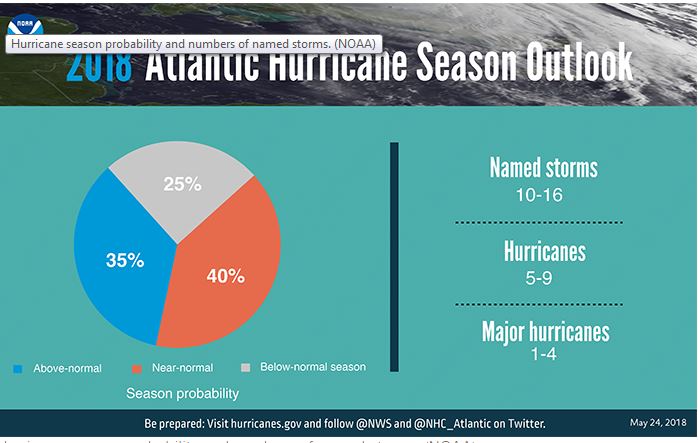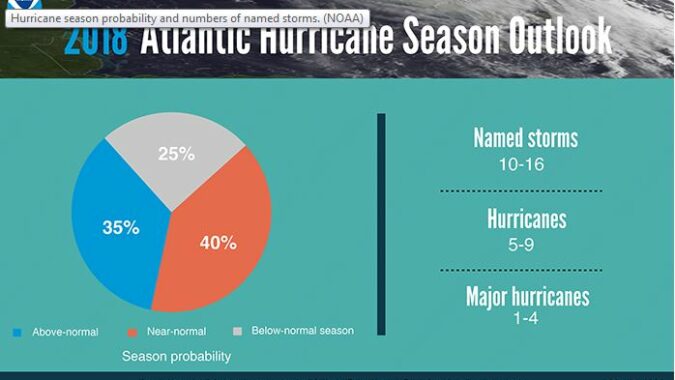June 1 marked the start of the 2018 Atlantic hurricane season, which means it’s a good time for businesses to review their disaster preparations and have business continuity plans in place.
Forecasters from the National Oceanic and Atmospheric Administration (NOAA) are predicting a 70 percent likelihood of 10 to 16 named storms (winds of 39 mph or higher) in the 2018 Atlantic hurricane season. NOAA expects that five to nine of these could become hurricanes (winds of 74 mph or higher), including 1 to 4 major hurricanes (category 3, 4 or 5; with winds of 111 mph or higher).
To help businesses get ready, NJBIA has an emergency preparedness webpage with plenty of resources (NJBIA member password required). Also, NJ’s Office of Emergency Management has useful information about how to prepare for hurricane season, which runs through Nov. 30.
In the meantime, here are four things you should do to be ready for a hurricane.
- Know your insurance coverage. Understanding your coverage is always necessary, but let’s face it, you don’t have time to pour through all that fine print. Set aside some time to review your policy and focus on the coverage you will need in the event of a storm, paying particular attention to any caveats in your policy. For instance, a flood insurance policy may not cover anything stored below sea level. Asking for help is a good idea, too. Business owners should take the opportunity to review their coverage with their insurance company or agent. Different types of insurance are also available, such as business interruption insurance in case your business has to be closed for a certain period, and ordinance or law insurance for protection during the rebuilding process.
- Have a crisis communications plan. How will you let your customers know whether your business is open? How will you tell your employees when to report to work? Answering these two questions before a storm hits will make your businesses survival much more likely.
- Protect critical documents. Once the storm is over, you will need to be able to access your most critical business documents as you deal with the recovery. Make sure you store your documents off site at a secure facility. It’s also a good idea to scan critical files and store them in a cloud-based file or other secure space. While copies will never completely substitute for originals, copies make it much easier to reconstruct a business arrangement after a disaster or interruption.
- Be safe. Follow safety guidelines when operating a portable generator, and check out this power outage checklist from the Red Cross.

